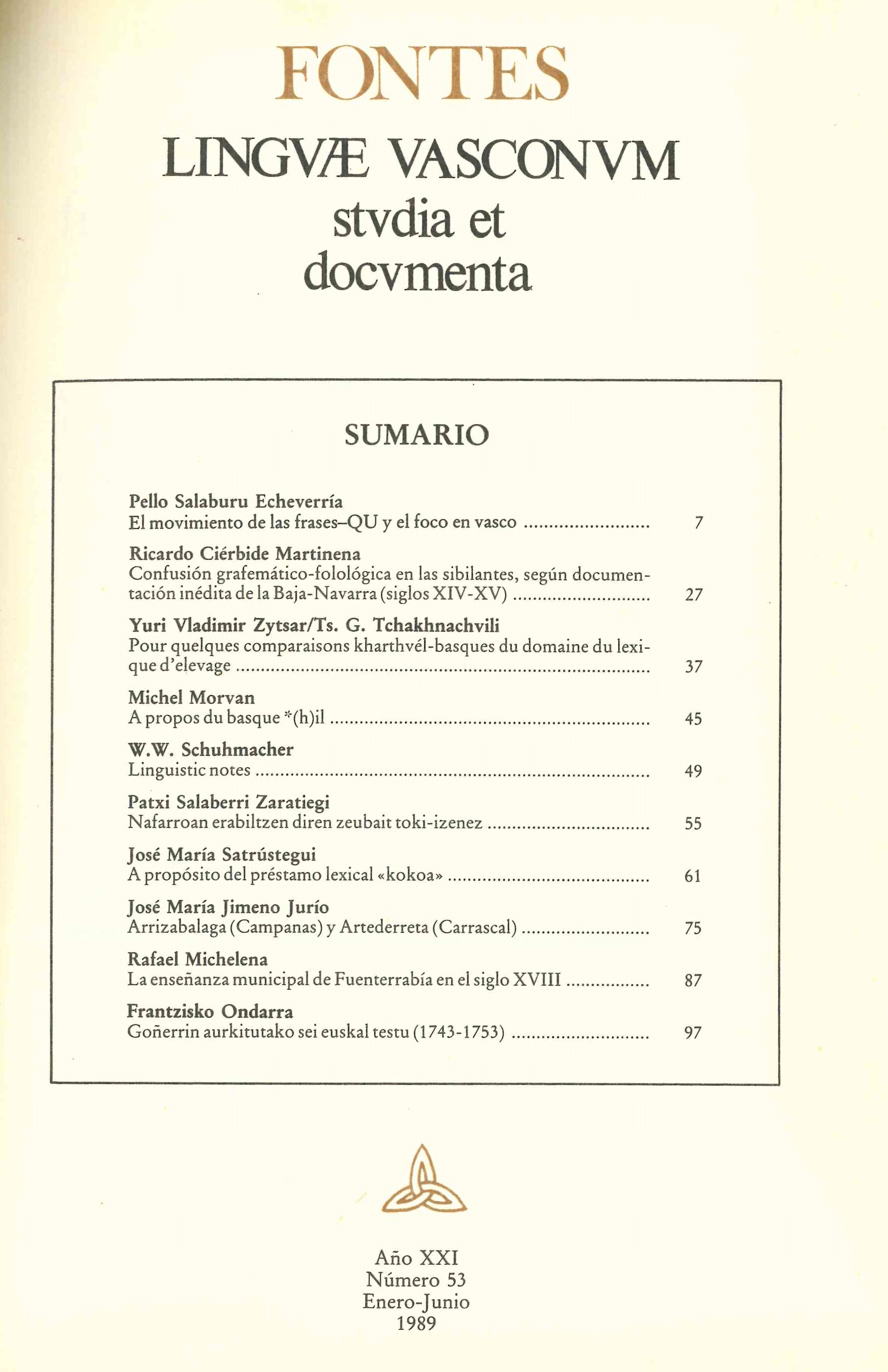Arrizabalaga (Campanas) y Artederreta (Carrascal)
Resumen
.
Estadísticas
39
La descarga de datos todavía no está disponible.
Publicado
1989-07-31
Cómo citar
Jimeno Jurío, J. M. (1989). Arrizabalaga (Campanas) y Artederreta (Carrascal). Fontes Linguae Vasconum, (53), 75-85. https://doi.org/10.35462/flv53.8
Sección
Artículos
Derechos de autor 1989 José María Jimeno Jurío

Esta obra está bajo licencia internacional Creative Commons Reconocimiento-NoComercial 4.0.







